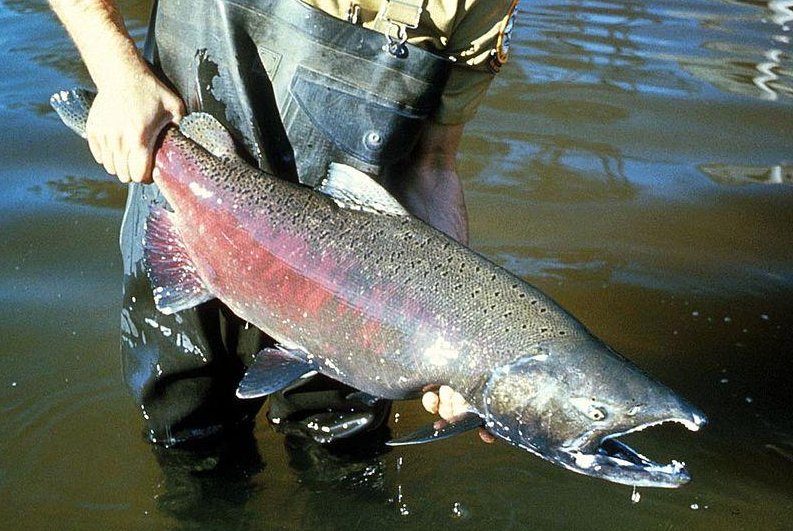Wildlife officials are assisting young Chinook salmon with their migration, as many rivers are too dry for them traverse. (CC:USGS)
ANDERSON, Calif., March 26 (UPI) -- California has started rescuing million of smelt, baby salmon, from drought-hit areas and moving them on trucks to rivers and streams near the Pacific Ocean.
State and federal officials plan to move more than 30 million young Chinook salmon from five fisheries in the Central Valley, in an effort to help save the state's fishing industry. The salmon are an essential part of California's recreational and commercial fishing industry -- estimated to be worth $1.5 billion.
“It is a Herculean effort to avoid disaster in three years,” said Andrew Hughan, spokesman for the state’s Department of Fish and Wildlife. “By disaster, I mean a collapse of the fishery industry; no commercial fishing and no recreational fishing.”
The salmon will ride in climate-controlled trucks filled with water that can hold up to 130,000 fish in all. They will then be acclimatized to their new waters in net pens before being released in the wild. According to Hughan, it will take around 275 truckloads to transport all the fish, costing the state close to $800,000.
Hughan also said that this is not the first time that fish have been transported, and the state performs the exercise every year. But this year the U.S. Fish and Wildlife Service joined in the effort and began by shipping 12 million salmon from the Coleman National Fish Hatchery in Northern California to a spot on the lower Sacramento River near Rio Vista.
Steve Matarano, a spokesman for the U.S. Fish and Wildlife Service, said that while the agency had trucked salmon over land a few times before, this year's drought prompted the agency to take plans to truck all the salmon.
California is suffering its driest year on record and storms earlier this month did little to help alleviate the severe drought conditions across the state.
Hughan said the effort was made to ensure that California fishing businesses, which account for 3,000 jobs, stayed open and also benefitted other ancillary businesses as well.
“If we didn’t do it, there would be no fish,” he said.
[LATimes]










